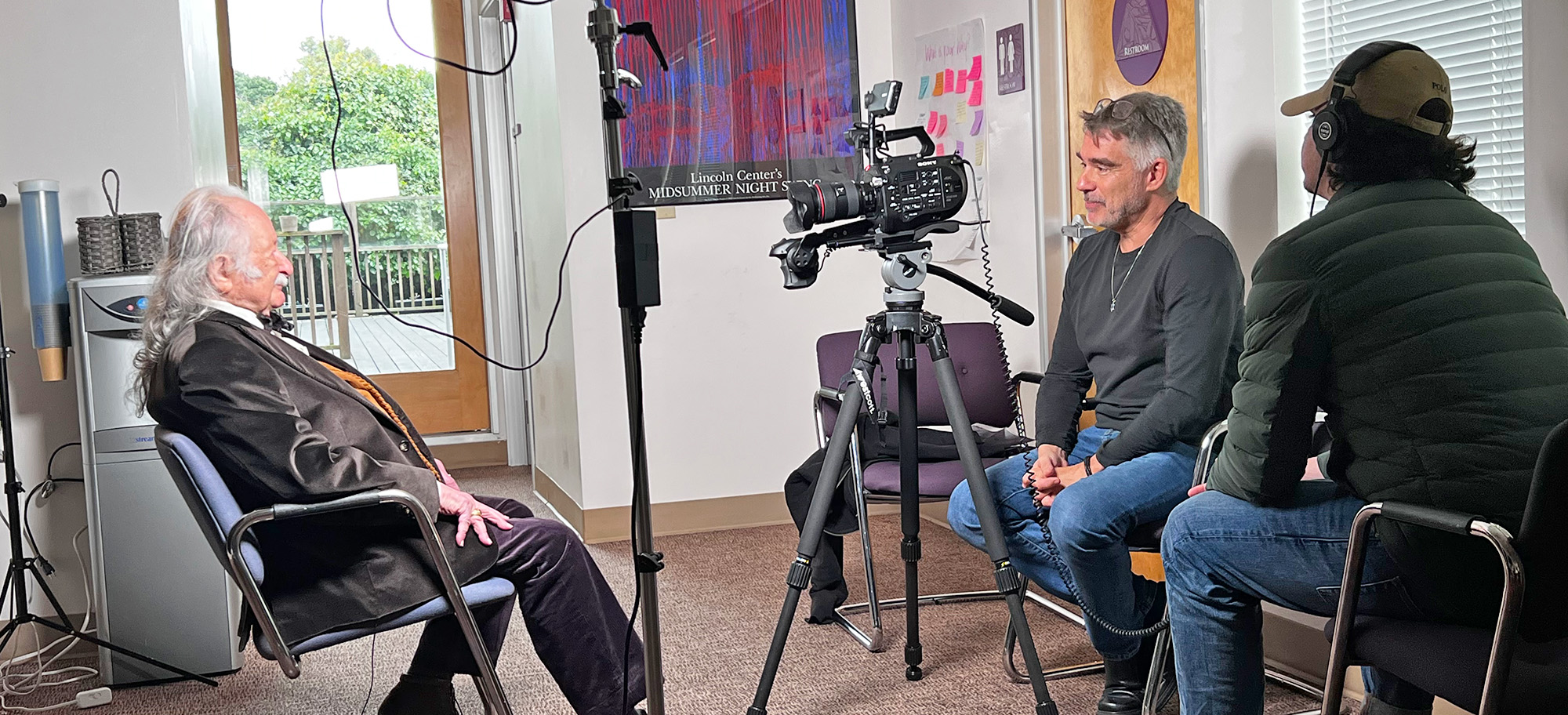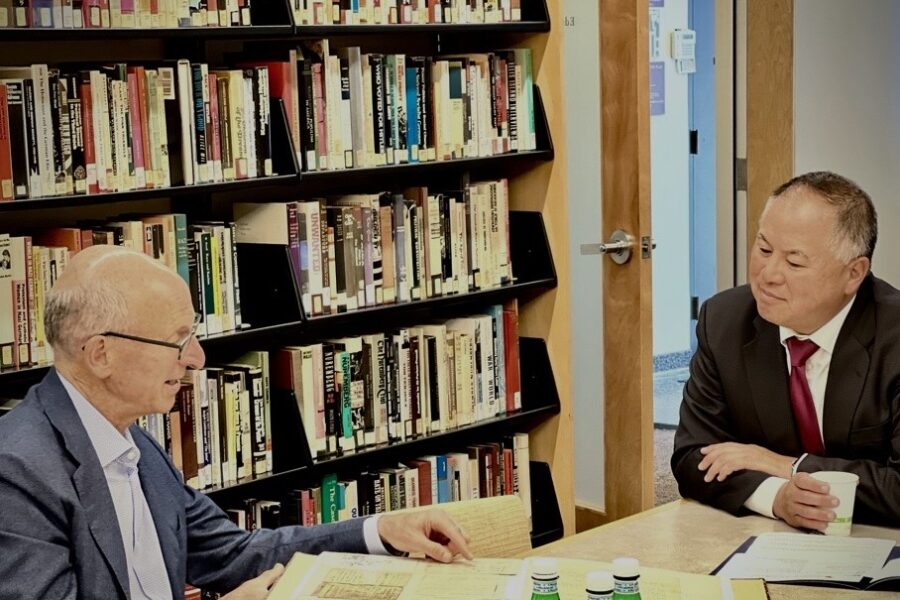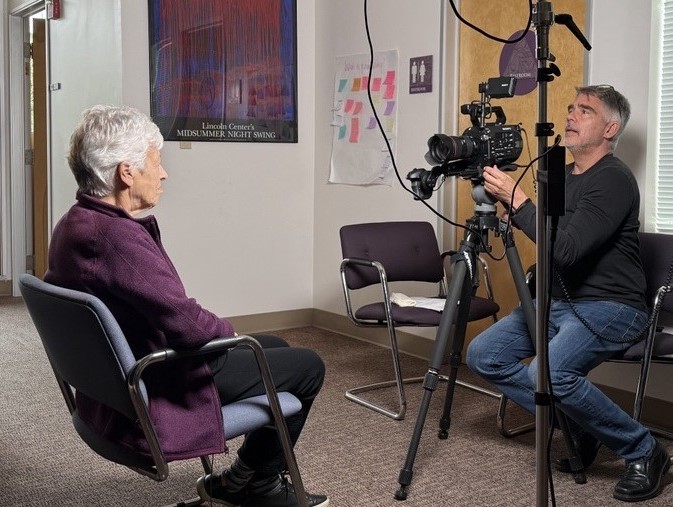Oral History Project
JFCS has established guidelines for inquiries, permissions, and licensing of existing oral history testimonies. Protocols have been inspired by the United States Holocaust Memorial Museum and the Visual History Archive of the USC Shoah Foundation.

Search the Interviews
The JFCS oral history archive includes over 2,000 audio and video testimonies, along with related documents and transcripts. An additional 55,000 testimonies are available onsite through the USC Shoah Foundation’s Visual History Archive (VHA), which features accounts from survivors and witnesses of the Holocaust, Armenian Genocide, Nanjing Massacre, Cambodian Genocide, Rwandan Genocide, and other atrocities. The JFCS Holocaust Center is one of just 85 global sites with full VHA access.
Visitors can also access Yale University’s Fortunoff Video Archive for Holocaust Testimonies, which holds over 4,400 testimonies.

The Tauber Holocaust Library and Archives welcomes visitors
To schedule a research visit to the Library or Archives: holocaustcenter.jfcs.org/library-archives/visit-the-library/
Oral History Guide for Educators
What are oral histories?
Oral histories are testimonies of survivors, recorded on audio and video tape. These personal stories provide us with an immediate way to grasp the horrors of the Holocaust, complementing the written words of diarists such as Rywka Lipszyc.
First Impressions of the Lodz Ghetto
“If you work good, nothing’s going to happen to you”: Rivka S. tells of her first impressions of the Lodz ghetto.
Life in the Lodz Ghetto
Nathan M. describes everyday life in the Lodz ghetto
First Impressions of the Lodz Ghetto
“Humans were pulling the wagons”: Erwin L.’s first impressions of the Lodz ghetto.
Dehumanization in the Lodz Ghetto
Lucille E. tells of the ghetto’s impact on self and humanity.
Life in the Lodz Ghetto
Industry in Lodz
The oral history clips on this site are excerpts from testimonies in the JFCS Holocaust Center collection.
Educators and students are encouraged to use these clips for Holocaust education projects. Sample lessons that align with the oral history clips selected:
This lesson plan provides an educational framework for teaching students about the historical development and impact of ghettos, particularly during the Holocaust. It covers the origins, purposes, and conditions of ghettos established by the Nazis, focusing on the experiences of Jewish communities. Download the lesson.
This lesson features excerpts from Rywka’s Diary: The Writings of a Jewish Girl from the Lodz Ghetto. It is a portrait of an individual, Rywka Lipszyc, her strength, spirit, and ability to cope, encouraging students to relate to Rywka as a fellow adolescent while understanding the deeper history that she lived. Download the lesson.

Tell Us About a Potential Interviewee
JFCS may be able to conduct interviews with individuals who experienced the Holocaust and have not yet recorded their oral history. If you or someone you know would like to be considered for an interview, please email HolocaustCenter@jfcs.org



